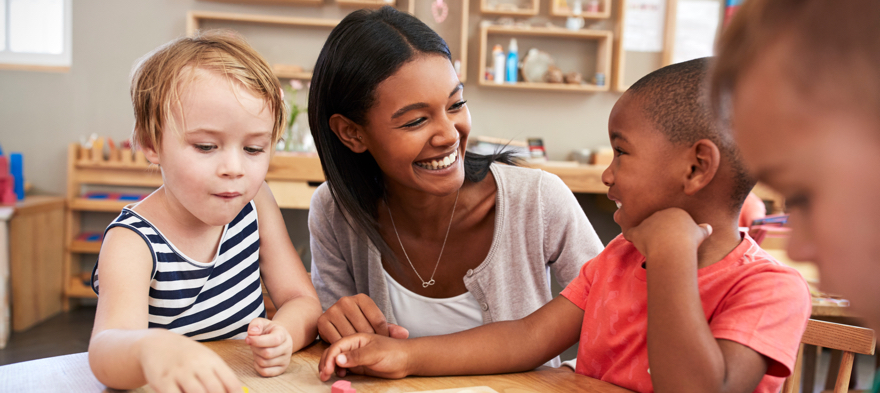
Sep 19, 2019 12:00:00 AM
We complain about what’s wrong with the public education system all the time. Admittedly, I’m probably on the long list of tough critics.
Some of our complaints stem from personal experience—I know mine do. Others could be influenced by news feeds that instigate political scuffles, are cluttered with scandals and invite the privileged to pity parties where marginalized communities are the main attraction. So, sometimes it’s difficult to see the good when it’s so often overshadowed by the bad.
Now my initial plan was to put the system on blast for its B.S. as much as I could. To be clear, that’s still the plan—however, a conversation with my sis in the struggle and mentor, Tosha Downey, changed my thinking.
See, the outrage is absolutely necessary—but so is the hope. There needs to be a healthy balance of both that ignites a fire under the asses of those of us who are outraged by these inequities and injustices, driving us towards creating solutions and demanding the change we know is possible.
So if I—if we—continue to only amplify the failures and not the wins, we’re guilty of perpetuating this narrative of educational despair in underserved communities with undertones of, “We’re doing all we can but Black and Latinx kids just can’t learn.”
Newsflash—[pullquote]it’s completely untrue that Black and Brown students can’t learn.[/pullquote] Founder and principal at Purpose Preparatory Academy in Nashville, Lagra Newman, is an educator who’s doing a damn good job of teaching them. In fact, Newman was recently honored at the annual Congressional Black Caucus for being a superb leader.
In Tennessee, 68% of fourth graders are below or at basic reading proficiency with 50% of Latinx and 44% of Black students falling in that category. And Nashville is doing worse than the entire state—only 34% of their third graders read at grade level.
But at Purpose Prep where the majority of the student body is Black or Brown, 60% of the school is reading at a proficient or advanced level.
Some would say it’s a miracle! No—it’s an educator who knows what she’s doing.
Then you have the Noble Network of Charter Schools, led by the dynamic Constance Jones. People have come at this network time and time again, but there’s no negating the success it's had in underserved communities. In fact, 13 of their campuses landed in Chicago’s top 40 best public high schools.
Constance Jones has worked diligently to maintain the network’s legacy of academic excellence, while also being a voice to dispel charter school myths and the negative stigma associated with Noble.
She even dyed her hair purple symbolizing her commitment to nurturing an evolving school culture by abolishing former strict policies that included rules around student hair color.
And finally, we have to give it up for Jonta Morris who recently opened the first charter school in Birmingham, making it the third in Alabama—a state where parents are starving for school choice options.
Now, the point of this piece isn’t just to brag on Black women doing dope things in the public school system—even though, as Vesia Hawkins points out in her tweet below, they sometimes don’t get enough media coverage of their accomplishments.
The point of this conversation is to get us to think—and act. Because it’s time's up for just complaining about the public school system’s failures without taking steps to fix it.
The fact of the matter is, Black and Latinx kids can learn when given support and equitable resources—some of y’all just are unable or don’t want to do it right. So with these facts and best practices in mind, we advocates have to storm our failing schools and demand reform. It’s the only way all of our kids will get the opportunities they need and deserve.
Tanesha Peeples is driven by one question in her work—“If not me, then who?” As the former Deputy Director of Activist Development for brightbeam, Tanesha merges the worlds of communications and grassroots activism to push for change in the public education system. Her passion for community and relentless mission for justice and liberation drive her in uplifting and amplifying the voices and advocacy of those that are often ignored. Tanesha wholeheartedly believes that education is the foundation for success. Her grand vision is one where everyone—regardless of ethnicity, socioeconomic status, gender or ZIP code—can have access to a comfortable quality of life and enjoy the freedoms and liberties promised to all Americans. And that's what she works towards every day.
Few issues in education spark more tension and debate than standardized testing. Are they a tool for equity or a burden on students? A necessary check on school systems or a flawed measure of...
Charter schools are public schools with a purpose. Operating independently from traditional school districts, they're tuition-free, open to all students, and publicly funded—but with more flexibility...
Despite the benefits of a diverse teaching force, prospective teachers of color fall out of our leaky preparation pipeline at every stage: preparation, hiring, induction, and retention. Here’s what...
Ed Post is the flagship website platform of brightbeam, a 501(c3) network of education activists and influencers demanding a better education and a brighter future for every child.
© 2020-2025 brightbeam. All rights reserved.
Leave a Comment